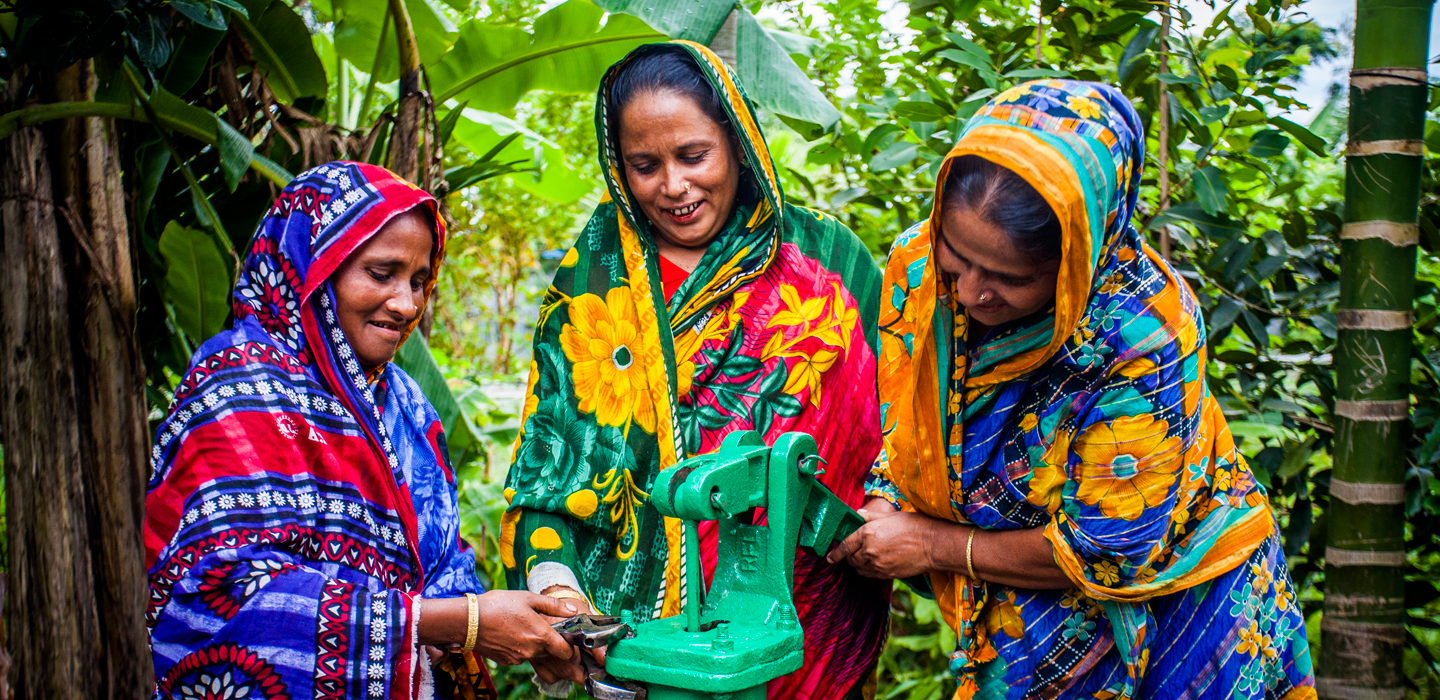Gender-Transformative Adaptation. From good practice to better policy
IFAD Asset Request Portlet
Asset Publisher
Gender-Transformative Adaptation. From good practice to better policy
Estimated reading time: 2 minutes
Gender inequality is a pervasive threat to sustainable development and has negative impacts on our collective ability to meet human rights obligations. It is also a determinant of exposure to climate change risks, as women and girls are more vulnerable to climate impacts. This short paper – developed by CARE in collaboration with CCAFS, ICRAF, IFAD, FANRPAN, FAO, UN Women and WGC – describes how good adaptation provides options to manage these risks and how it can address gender-based vulnerability. We draw on experiential learning and outline where transformative change in gender relations has been sought and secured in adaptation initiatives.
Our lessons point towards a need to invest in participatory action research, testing new technologies, and co-learning. This will further enhance understanding of gender and climate change issues, while, equally importantly, strengthen capacity in local partners for gender-transformative interventions in agriculture.
Our analysis concludes that gender analysis is a non-negotiable action in any adaptation in agriculture design process because information on the differentiated access to, control over, and knowledge about existing resources in a community is essential for and influences planning, data collection, and actions. Our cases also demonstrate that successful local adaptation planning and action requires good governance structures that engage public and private sector actors and that more research is required that puts communities at the centre of monitoring of this governance.
We also draw attention to marginalization in adaptation and how intersectionality, where gender inequality is experienced in different ways depending on age, class, ethnicity, or sexual identity etc. is critical to understand and respond to. Labour burden emerges as a key area for focus and how women and girls’ use of time, in unpaid domestic work and other activities where they are considered providers of manual labour – are not supported with technologies or labour-saving practices. The correlations between increasing access to agriculture resources and services for women and their participation in decision-making, and household income and nutrition management are explored and we find that engaging men is a predominant success factor. Interventions outside agriculture such as in the finanical or social protection sectors can also help secure access to resources for women. We also note that having gender-trained male and female facilitators and leaders in communities who are brokers and role models is important and that we, as public, private and civil society actors must take responsibility to address gender-based imbalances in our own teams, approaches and investments.
Women are powerful agents of change and with support, their confidence increases in expressing their views in the household and in public fora. Amplifying voice improves activism and political representation and leads to greater equality. We warn that there is risk of backlash at household or in the public sphere, in response to women moving increasingly into public spaces or gaining financial autonomy – and that these risks need careful management.
Adaptation actions in agricultural production and market integration, in natural resource management or in the protection of ecosystems must engage with and address gender-based power dynamics to succeed. The implications for policy and programming are that women will remain neglected by development interventions unless their differing needs, preferences, and constraints are considered. Better integrating research and practice, and designing interventions with gender in mind will accelerate progress towards achieving many development objectives, while enabling women and men to become agents of their own empowerment.
Read more: Gender-Transformative Adaptation. From good practice to better policy
Publication date: 02 July 2019